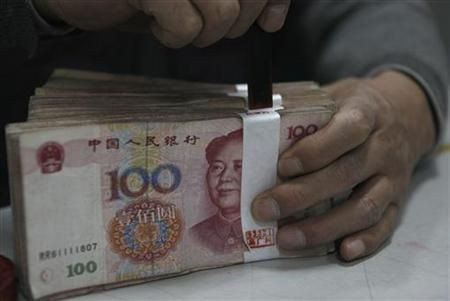China Enters the Brain-Drain Game Baiting Foreign Experts: Will it Challenge U.S. to Become the 'Land of Opportunities'?

With the rising economy of China ensuring its steady march toward the superpower position, the country has rolled out special programs to attract foreign elites which could make it the land of opportunities for skilled immigrants rivaling the U.S.
One constant challenge that China faces is finding talented people with managerial, technical and creative savvy to adapt to the country's distinct culture and work environment. To tackle these issues China will carry out programs in four key industries with the objective to import foreign experts during the next five years, according to sources within the State Administration of Foreign Experts Affairs (SAFEA). The four fields include agriculture, manufacture, service industry and software and integrated circuits, according to the SAFEA.
In the field of software and integrated circuits, China will launch five international training bases to import high-caliber foreign experts and teams to further global cooperation. According to a statement released by SAFEA earlier this month, China will recruit 500 to 1,000 high-caliber foreign experts over the next 10 years in a bid to boost economic and social development.
The Beijing municipal government has relaxed the age limit for candidates applying to a scheme designed to recruit senior foreign experts to work in science and technology in China. The age limit for people applying for the 1,000 Foreign Experts program can now be up to 65 years old, rather than the previous one of 55 years.
Beijing's 1,000 Foreign Experts is a part of the nation's Recruitment Program of Global Experts, initiated in 2008 to attract overseas experts in various industries to help improve the country's scientific and technical innovation. Notably, excluding social science fields, it was so called because it bids to recruit 500 to 1,000 foreign experts within five to 10 years.
One of the goals is to address the issue of the acute shortage of seasoned research scientists, which is the biggest roadblock to China's aspirations of becoming an innovation powerhouse.
Accomplished physicists, biologists and mathematicians, who are capable of producing technological breakthroughs and developing key research programs, have for long cringed at the low pay and the university system tarnished by corruption, cronyism and sloppy standards. But now, China's economic boom and surging government investment in research have made mainland university posts more attractive.
Long-term grants to top scientists, allowing them wider latitude to conduct truly innovative research and a new curriculum that will focus more on problem-solving, are becoming the norms of Chinese universities.
Certainly China is making the right moves to lure foreign talent pool to the country. Meanwhile it has to be seen in the future how effectively these steps will be implemented to challenge the opportunities offered by the U.S.
© Copyright IBTimes 2024. All rights reserved.





















